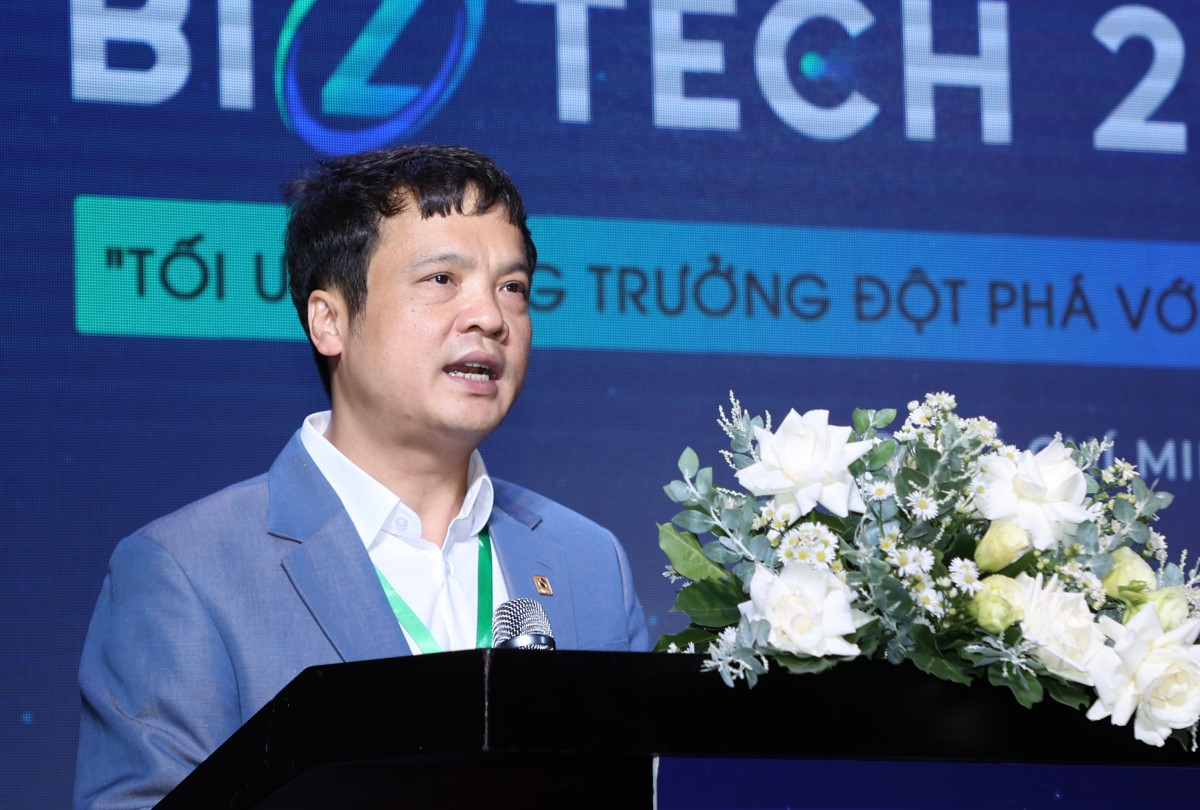“If in the past, job seekers were expected to know Word and Excel, then today, résumés must also demonstrate the ability to use and apply AI,” said Nguyen Van Khoa, Chairman of Vinasa.
Nguyen Van Khoa made this statement at the Biztech Vietnam 2025 Conference and Exhibition held in Ho Chi Minh City on June 3.

In his opening remarks, Khoa cited Resolution 68 of the Politburo, which affirms that the private sector is one of the most important drivers of Vietnam’s economy.
By 2030, the country aims to have two million enterprises, contributing 55-58% of GDP, 35-40% of state budget revenues, and generating jobs for 84-85% of the workforce, with labor productivity increasing by 8.5-9.5% annually.
National progress, he emphasized, is powered by enterprises, and those businesses must lean on science, technology, and innovation to achieve breakthrough growth.
He noted that never before have science, technology, and digital transformation been placed at the heart of national development strategy as they are now, especially under Resolution 57. These pillars are the core of all issues related to growth.
According to Khoa, the world is undergoing a profound transformation driven by artificial intelligence (AI), and Vietnam has identified AI - especially generative AI - as one of the strategic technologies for focused development.
He shared local examples to highlight the AI wave: a translation company in Ho Chi Minh City has cut 70% of its staff, a publishing firm has reduced editorial costs by 30%, and banks are closing numerous customer service branches as AI adoption surges.
Khoa also revealed that a senior official at a leading government technology agency recently admitted that their department's workload has increased 20 to 30 times, prompting them to purchase five AI applications just to keep pace.
In the context of Vietnam’s two-tier local governance model, more tasks are being shifted to commune-level authorities. Applying AI can significantly ease the workload for grassroots-level officials and improve administrative efficiency.
As AI becomes more pervasive in businesses, the workforce must adapt accordingly. “AI isn’t taking away jobs,” Khoa emphasized. “People must evolve, must equip themselves to work alongside machines. In the past, that meant simple tasks like using Word or Excel. Now, generative AI becomes a partner in the workplace.”
He reiterated, “If previously, job applications required proficiency in Word and Excel, now they must also include skills in using and applying AI.”
Le My